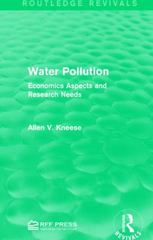Question
1st link ) https://libertystreeteconomics.newyorkfed.org/2021/09/the-housing-boom-and-the-decline-in-mortgage-rates/ 2nd article) Global developments that pushed up oil and gas prices explain some of the rise in inflation; core inflation, which
1st link ) https://libertystreeteconomics.newyorkfed.org/2021/09/the-housing-boom-and-the-decline-in-mortgage-rates/
2nd article) Global developments that pushed up oil and gas prices explain some of the rise in inflation; core inflation, which excludes energy and food, was 4.6% in October. Core inflation has been heavily influenced by shortages of inputs, such as semiconductors for automobiles, and bottlenecks such as for oceangoing freight. Yet most other advanced economies have suffered similar disruptions, and their inflation has risen less than that of the U.S. What sets the U.S. apart is the combination of constricted supply in many sectors and stimulus-inflated demand. Normally, an industry responds to higher demand mostly by raising output and only partly by raising prices. (Economists would say the supply curve slopes up). Sometimes, though, supply is fixed (the supply curve is vertical). This characterizes the oil market. In 2008, demand from China surged when producers had little spare capacity. Oil prices rocketed to records, lifting inflation around the world.
The auto market this year resembles the oil market of 2008. Ordinarily, auto manufacturers can meet increased demand with ease. But this year, as low interest rates and pandemic-triggered needs drove up demand, supply has been fixed because of a lack of semiconductor chips. The result: a huge jump in prices that, according to IHS Markit, explains roughly a third of the rise in the Federal Reserve's preferred core inflation measure. Many economists note the boost to inflation is concentrated in goods. That's because the pandemic diverted consumer spending away from services such as restaurant meals toward goods such as groceries. Nonetheless, the unusual dynamics are spreading to services as well.
The Covid-19 pandemic diverted consumer spending away from services such as restaurant meals toward goods such as groceries. The cost of shelter, for example, depends heavily on home prices which are up 14% so far this year, according to Freddie Mac. Don't blame the Fed: the decline in mortgage rates since 2019 can at most explain 5 percentage points of the increase, a Federal Reserve Bank of New York review of various studies concludes. Don't blame investors or speculators, either: cash buyers' share of home buying is normal, according to Freddie Mac. Prices are up so much because demand is being funneled into just a few segments of the market. Demand has been especially strong for entry-level existing homes in smaller interior markets with limited inventory such as Idaho, whereas the "gateway" markets of New York, Los Angeles, and San Francisco, Boston, Washington, D.C., and Miami are experiencing significant out-migration
QUESTIONS: Draw a hypothetical supply-demand graph for the apartment rental market in San Francisco. In your graph what is the equilibrium price and quantity of apartments? Show the impact of a binding price ceiling that San Francisco puts on rental properties. At the price ceiling what is the quantity demanded? What is the quantity supplied? Explain why rent controls typically result in economic inefficiency?
Step by Step Solution
There are 3 Steps involved in it
Step: 1

Get Instant Access to Expert-Tailored Solutions
See step-by-step solutions with expert insights and AI powered tools for academic success
Step: 2

Step: 3

Ace Your Homework with AI
Get the answers you need in no time with our AI-driven, step-by-step assistance
Get Started


